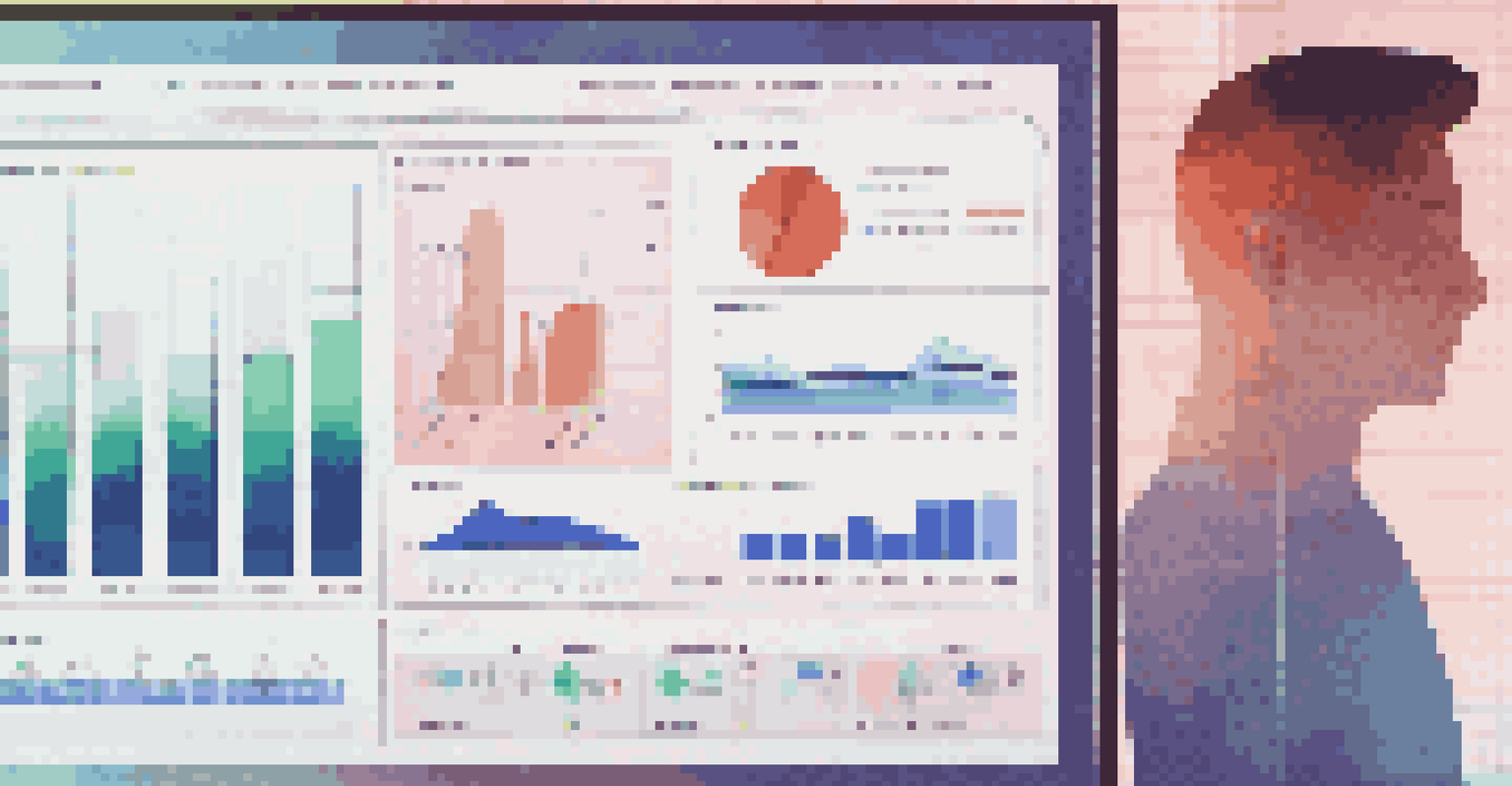AI-Powered Risk Mitigation Strategies for Data Privacy

Understanding the Importance of Data Privacy Today
In our increasingly digital world, data privacy has become a cornerstone of trust between businesses and consumers. With more personal information being collected online, protecting this data is essential to maintaining that trust. Failing to safeguard sensitive information can lead to severe repercussions, including financial loss and reputational damage.
Data privacy is not just about protecting information; it's about building trust with your customers.
Moreover, recent regulations like GDPR and CCPA impose hefty fines on organizations that fail to comply with data privacy standards. These laws make it clear that businesses must prioritize data protection or face significant penalties. As a result, companies are now looking for innovative solutions to bolster their data privacy efforts.
This is where AI-powered strategies come into play. By leveraging artificial intelligence, organizations can not only enhance their data protection measures but also streamline compliance with ever-evolving privacy regulations.
How AI Enhances Data Privacy Strategies
AI technologies, such as machine learning and natural language processing, can analyze vast amounts of data at unprecedented speeds. This capability allows organizations to identify potential risks and breaches before they escalate into serious issues. By utilizing AI algorithms to monitor data usage patterns, businesses can proactively detect anomalies that may indicate a privacy threat.

For instance, if an employee accesses a large volume of sensitive customer data outside their usual scope, AI systems can flag this behavior for further investigation. This proactive approach not only helps in mitigating risks but also ensures that organizations remain compliant with data privacy regulations.
Data Privacy Builds Consumer Trust
Protecting personal information is essential for businesses to maintain trust with consumers in a digital landscape.
Furthermore, AI can automate data classification, ensuring that sensitive information is categorized correctly and afforded the appropriate level of protection. This automation reduces the chances of human error, which is often a significant factor in data breaches.
Implementing AI Solutions for Risk Detection
To effectively implement AI solutions for risk detection, businesses must first identify their unique data privacy challenges. Understanding the specific threats they face—such as unauthorized access or data leaks—enables organizations to tailor their AI strategies accordingly. This targeted approach ensures that resources are allocated efficiently and effectively.
The goal is to turn data into information, and information into insight.
Once the challenges are identified, organizations can choose from various AI tools and platforms designed to enhance data privacy. These tools often include predictive analytics that can foresee potential risks based on historical data, making it easier for companies to address vulnerabilities before they become problematic.
Additionally, collaboration with AI vendors can provide businesses with the expertise needed to integrate these technologies seamlessly into their existing systems. This partnership can be crucial in ensuring that the chosen AI solutions align with the organization's overall privacy goals.
The Role of Continuous Monitoring in Data Privacy
Continuous monitoring is vital in maintaining effective data privacy practices. AI systems can provide real-time surveillance of data access and usage, allowing organizations to stay ahead of potential threats. This ongoing vigilance helps build a robust defense against data breaches and other privacy risks.
For example, AI can track user behavior and alert security teams of any unusual activity that deviates from established patterns. This rapid response capability is crucial in mitigating risks before they escalate into serious incidents.
AI Enhances Risk Detection
AI technologies can proactively identify potential data privacy threats, allowing organizations to mitigate risks before they become serious issues.
Moreover, continuous monitoring ensures that organizations can adapt to new threats as they emerge. As cyber threats evolve, so too must the strategies to combat them, making real-time oversight indispensable in the modern data landscape.
AI-Driven Data Anonymization Techniques
One effective strategy for protecting sensitive information is data anonymization, where personal identifiers are removed or obscured. AI can enhance this process by automating the identification of sensitive data and applying anonymization techniques efficiently. This not only saves time but also minimizes the risk of human error.
For instance, AI algorithms can analyze datasets to determine which fields contain personally identifiable information (PII) and apply the appropriate anonymization methods. By doing so, organizations can still leverage valuable data for analytics without compromising individual privacy.
Additionally, AI can help in creating synthetic data that mimics real datasets without containing any sensitive information. This synthetic data can be used for testing and development without risking privacy violations, allowing organizations to innovate while maintaining compliance.
Enhancing Employee Training with AI Tools
While technology plays a crucial role in data privacy, human behavior remains a significant factor in risk management. AI can assist in enhancing employee training programs by personalizing the learning experience based on individual roles and responsibilities. This tailored approach ensures that staff members receive relevant training that resonates with their specific duties.
For example, AI can analyze employees' interactions with data and identify areas where they may need additional training. By targeting these gaps, organizations can foster a culture of data privacy awareness and responsibility throughout the workforce.
Continuous Monitoring is Essential
Real-time surveillance of data access through AI is crucial for adapting to evolving cyber threats and maintaining robust data privacy practices.
Moreover, AI-driven simulations can create realistic scenarios that help employees practice their responses to potential data breaches. This hands-on training equips staff with the skills necessary to act swiftly and appropriately in the event of a privacy incident.
Future Trends in AI for Data Privacy Management
As technology continues to evolve, so too will AI's role in data privacy management. Emerging trends indicate that AI will increasingly integrate with other technologies, such as blockchain, to create even more secure data environments. This synergy can enhance transparency and traceability in data transactions, further bolstering privacy measures.
Additionally, advancements in AI capabilities will allow for more sophisticated threat detection and response systems. With machine learning algorithms becoming more adept at identifying complex patterns, organizations can expect improved accuracy in predicting and mitigating risks.

Ultimately, as data privacy regulations become more stringent and consumer awareness rises, businesses will need to stay ahead of the curve. Embracing AI-driven solutions will not only enhance compliance but also build trust with customers, positioning organizations as leaders in data protection.